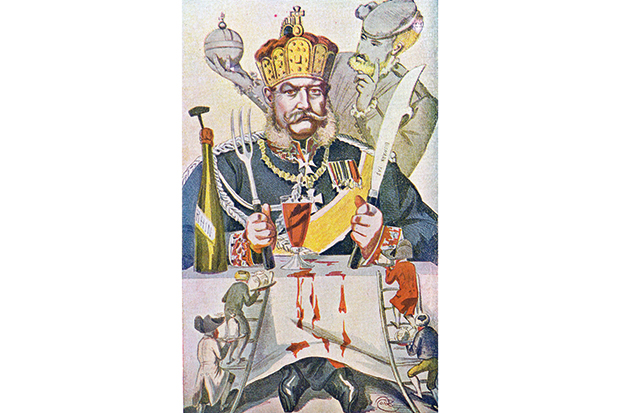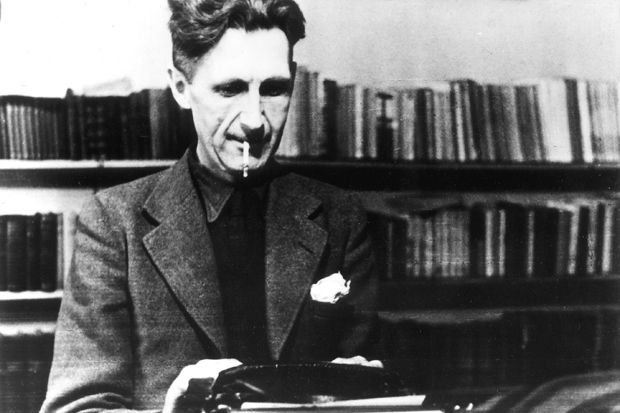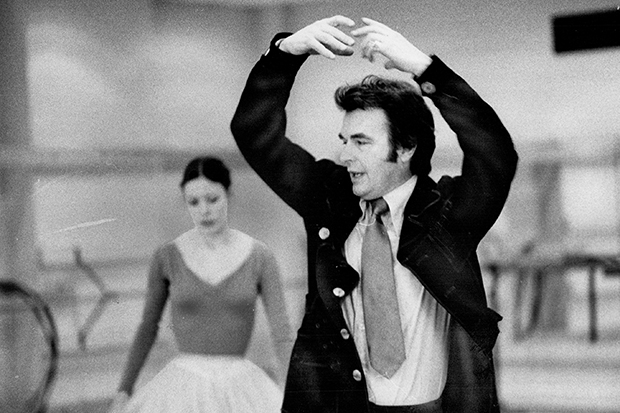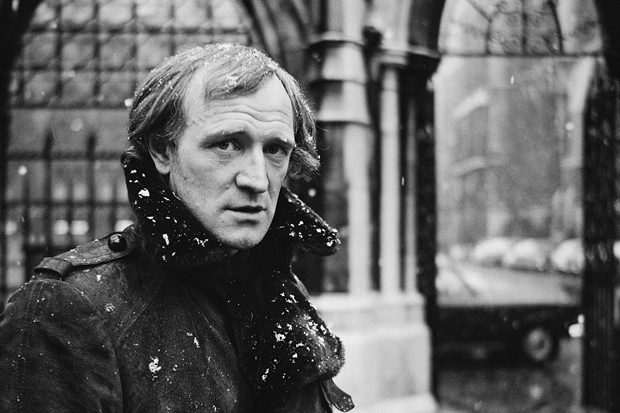The Penguin History of Europe reaches its seventh volume (out of nine) with Richard J. Evans’s thorough and wide-ranging work on the 99 years from 1815 to 1914. It comes between two formidable books by formidable scholars: his fellow Cambridge historian Tim Blanning took the story from the close of the Thirty Years’ War to Waterloo, and the Hitler authority Ian Kershaw covered 1914 to 1949.
Each of those volumes is much as one would expect of the author: Blanning’s shows his background as a polymath, and his expertise in the histories of more than one major European power; Kershaw’s puts the rise of the Third Reich and its consequences at the centre of his. But Evans developed under the influence of E.H. Carr and the Marxist historians, and his book comes back time and again to issues of class. To label it as straightforward Marxist history would not be fair, though the skidmarks are visible.
Evans dedicates his book to the memory of Eric Hobsbawm, to whom many in the Cambridge History Faculty (where the author was regius professor) accord a reverence and respect that less acute and privileged souls may find hard to understand. To be fair to Evans, class struggles were going on intensely around Europe from the moment Napoleon was dispatched to St Helena, and viewing the history of the ensuing century through that prism is as reasonable a way of doing it as any other, though it cannot be the whole story. Nearly 25 years of warfare had destablised not just governments but entire social orders; and the restlessness that emanated left ruling elites fearing a repeat of 1789. Ironically, it would be France itself that would lead the way in such renewed upheavals, both in 1830 and 1848.
Evans adeptly pulls together the different strands of tension and anxiety that led to the 1848 convulsions: he also illuminates these by reference to the changes in society consequent upon the advances of technology, notably the development of railways. Although this history of necessity dwells on continental Europe, Evans also points out how for much of the century with which he deals Britain led the way: not just in technology (it had the Industrial Revolution before anyone else, which effectively sealed its place as the leading world power in the 19th century, and built most of Europe’s railways), but in social matters.
Britain was helped by not having a peasantry or serfs who had to be controlled, and in its Reform Acts of 1832, 1867 and 1884 began the process of enfranchising those outside the traditional elite. Meanwhile, around Europe, autocracy struggled to survive after the close call of 1848.
As a German specialist Evans is, as one would expect, good on German unification and the key events that preceded it: the rise of Bismarck, the war between Prussia and Austria and, in 1870–71, the Franco-Prussian war, which sealed the wretched fates of both nations for the ensuing 75 years and beyond. His writing on Italian unification is less satisfactory. He also deals well with other themes, such as the rise of the bourgeoisie (again, in keeping with his class analysis) and how it changed both the social and physical landscapes of the Continent; though he says perhaps too little on the rise of secularism, which would be crucial to the move towards revolution and anarchy that he rightly points out distinguished many European societies around the turn of the 19th century. Implicit in this is the decline of the power of the aristocracy, whose death blow would come immediately after 1914. A section entitled ‘The Making of the European Working Class’ is properly objective, and shows how the foundations were laid across the continent for the power of the working-class movement, even if things did not quite turn out as Marx and his devotees would have wished.
It is inevitable that in a book of this sweep — covering a continent from Stornoway to Salonika and Vigo to Vilnius, and all events therein — must be superficial in some respects, and display some strange judgments in others. It also falls well below Penguin’s normal standards of copy-editing, the most egregious example of which is that in the section entitled ‘The Age of Imperialism’ the very title is mis-spelt in the chapter heading and on the head of each page. And no one at Penguin seems to have grasped the correct meaning of the verb ‘to eke out’.
And there are factual errors which in their range also help illustrate the scope of the book: there was no such person as Lord George Macartney; Gorz is not on the Mediterranean, but near the top of the Adriatic; Earl Russell, and not Gladstone, succeeded Palmerston as prime minister; there were 14, not 20, men in Disraeli’s 1868 cabinet; Thomas Crapper was never knighted (though these days would probably be a duke, especially if he assisted a prime minister); there is no proof Asquith had an affair (by which carnal activity is usually understood to be the defining part), lengthy or otherwise, with Venetia Stanley, even though he was obsessed with her; and it is simply not true to say Edward VII played no ‘notable part in politics’ — Salisbury, Balfour and Asquith especially found him to be a deep irritant because of his constant interference, and Balfour was outraged
by the initiative that became the Entente Cordiale.
In terms of narrative, such books as these are always helped by lightness of touch, but that is not Evans’s style: anyone who has read A.J.P. Taylor’s 1914–45 volume in the Oxford History of England will know how well such a style can work in this context. But for those prepared to concentrate, and not be put off by the often earnest tone of the writing, the reward will be a clear understanding of the history of a continent in a crucial century, from a certain point of view. It is an effective starting point for study of the period, and one that raises as many questions as it might answer.
The post Revolution was in the air appeared first on The Spectator.
Got something to add? Join the discussion and comment below.
Get 10 issues for just $10
Subscribe to The Spectator Australia today for the next 10 magazine issues, plus full online access, for just $10.
You might disagree with half of it, but you’ll enjoy reading all of it. Try your first month for free, then just $2 a week for the remainder of your first year.














Comments
Don't miss out
Join the conversation with other Spectator Australia readers. Subscribe to leave a comment.
SUBSCRIBEAlready a subscriber? Log in